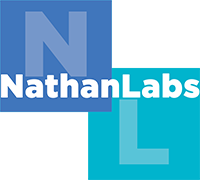Data security and privacy are fundamental issues that businesses in the United States have in the current technology-based world. Due to the rising number of third-party service providers a company relies on supporting highly technical processes such as data hosting, colocation, data processing or Software as a Service (SaaS), there has been a significant rise in the demand of sound security assurances. The idea of achieving SOC 2 compliance in USA has turned into a standard that has gained the respect of many people, as it provides companies with a chance to test the efficacy of their security strategies and guarantee customers and other stakeholders of the organization that confidential data are safeguarded at all stages of its lifecycle. By listening to the broader effect and significance of this structure, it is important to realize that there is a list of different types of organizations that need to have SOC 2 certification, and these forms are created in a precise way.
The American Institute of Certified Public Accountants (AICPA) has created SOC 2 on the basis of five trust service principles which include security, availability, processing integrity, confidentiality, and privacy. In contrast to the more stringent compliance frameworks, SOC 2 is flexible giving companies freedom to create more controls and procedures around their operations requirements. Such flexibility renders the SOC 2 compliance applicable to a very diverse range of businesses, most notably to those that process sensitive data or such that has to be regulated.
Technology organizations- particularly the ones providing cloud infrastructure, SaaS applications, or IT-managed services are the leading users of the SOC 2 certification in the USA. Since such businesses handle a significant amount of customer data, they should have high security controls to continue earning the trust and adherence to contracts. The presence of a SOC 2 certification confirms that such service providers have put in place mechanisms that help combat breaches of their data, availability of systems and integrity of the information.
Other institutions that depend on SOC 2 compliance are financial institutions such as banks, credit unions, and fintech firms. Considering that there is a strict regulatory framework around financial data, complying with SOC 2 principles can telegraph these organizations to deal with the risks associated with the challenges such as confidentiality and process integrity. The SOC 2 certification acts as an indication to both the clients and the regulators that the financial companies are taking the preemptive actions to protect sensitive data and uphold reliable operations.
Another area that is achieving the SOC 2 certification is by healthcare providers and health IT vendors. All these organizations have an increased pressure to safeguard health information with the regulations as provided by HIPAA and other laws that govern the privacy of patients. The privacy and security principles outlined by SOC 2 supplement requirements established by HIPAA in that they offer an independent view of the controls in place in order to protect the data on patients and maintain consistency and reliability of the system.
Vendors who supply IT and cloud services to government contractors and agencies have an increasing necessity to seek SOC 2 certification as the standard with which they must comply. This assists in maintaining the security and availability of critical systems to the governments. Adherence to the SOC 2 ensures some level of confidence exists that sensitive data of the government and the citizens have been treated with ultimate care and best practices.
Even smaller companies and new-comers in the USA have become aware of the competitive advantage that SOC 2 certification brings with it. Although compliance is resource-starved, SOC 2 allows the smaller service providers to exhibit credibility and security maturity which may lead to formation of partnerships with larger enterprises and governmental institutions.
Shop owners and online retailers value SOC 2 compliance as well, because they manage information about the customers. It is important that online channels and data analytics operations are well equipped with high security measures to boost customer confidence, as well as comply with laws and regulations of the payment industry.
Education schools and educational technology companies that handle student data and research data increasingly follow SOC 2 models to protect sensitive information and maintain privacy standards, in particular, as more and more learning happens remotely and through cloud-based education platforms.
Law firms and other professional service providers which handle sensitive information of clients also find SOC 2 certification beneficial in order to show that they are concerned with data safety especially when it comes to dealing with regulations bodies or government customers.
In all these different industries, SOC 2 compliance is both a tool to manage the risk and differentiate itself in the market. An independent audit is performed during the process of certification to determine whether a company has the necessary controls that address the appropriate principles of trust, which gives confidence to the clients and other stakeholders of the company in terms of the integrity of the data and the reliability of their operations.
A carefully prepared process, such as those involving assessments or readiness, control implementation, staff training and annually monitoring the success are required to reach SOC 2 compliance status in USA successfully. Most of the organizations engage SOC 2 compliance advisory services to assist them in the process to be able to have an easy journey towards certification and minimize audit failures.
In addition to certification, SOC 2 also promotes the culture of perpetual improvement and vigilance, as current cyber threats tend to change quickly. To make sure you remain compliant, you should make sure to refresh controls regularly, perform internal auditing, and change with the times of business and emergent risks.
